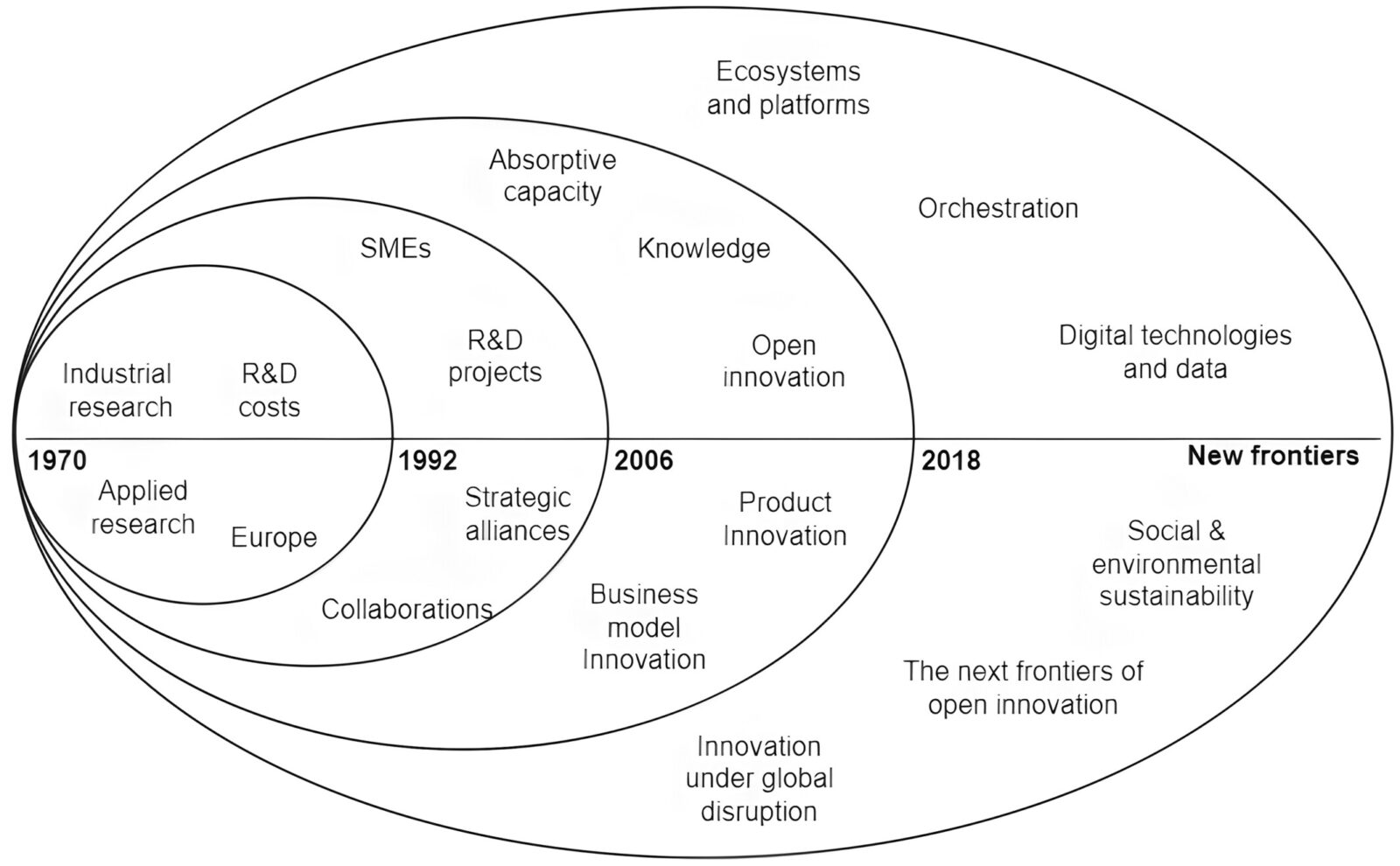Hot topics in R&D management have evolved over the years so what is the future trajectory? The editors of R&D Management identify six themes that are shaping the future of the R&D management field.
In 2020, we celebrated a milestone for the R&D Management journal, marking its 50 years of publication. Through these years, the journal has been a forerunner in the field, hosting a myriad of research studies and reflecting the vibrant history of R&D management. But how has the research evolved within its pages over time? How has the journal itself grown and expanded? And what might the future hold for this outlet?
We decided to take a journey back in time and conducted a comprehensive analysis of the journal’s past five decades. Our retrospective examination is not only a tribute to the journal’s rich history but also a look towards the future in the R&D management field.
How did we conduct the study?
We used a set of research techniques known as bibliometrics to dive deep into the heart of R&D Management. This allowed us to identify the journal’s most popular topics, recurring themes, and prolific contributors over the years. We scrutinized everything from individual authors to institutions and countries, tracing the journal’s international footprint. We didn’t stop at just analyzing the journal’s growth, we delved into the content too. An in-depth qualitative content analysis of the most cited papers—both annually and of all time—helped us unravel the key themes and concepts that have shaped the progress of R&D management as a discipline.
The key trajectories and growth of the journal
Our findings reveal that R&D Management has seen a significant boost in its productivity and reputation. This is apparent from the increasing number of published articles and citations per year. Notably, the journal’s reach has also expanded beyond its initial European roots to involve a broad and global authorship and audience.
Intriguingly, our analysis indicates a shift in perspective over the years. Between 1970–1992, the journal primarily focused on the intra-organizational aspects of R&D. From 1992–2006, the focus expanded to inter-organizational views. And from 2006–2018, the journal adopted an extra-organizational outlook, signifying a growing emphasis on the wider impact of R&D beyond individual organizations.
Looking to the Future
Based on this historical journey and the most recent contributions and special issues, we identified emerging research trends that could shape the future of R&D Management. These trajectories not only represent the future of the journal but also hint at the directions the R&D management field at large could take. These include six particular themes:
- Ecosystems and Platforms: This theme focuses on the evolution of R&D and innovation within various ecosystems and platforms. It explores how digital platforms and ecosystems, often used interchangeably, facilitate loosely connected actors to achieve a common goal, such as creating new products or entrepreneurial opportunities.
- Orchestration: This emerging theme explores the role of coordination in innovation processes, specifically how ecosystem or platform leaders organize and manage resources, knowledge, and stakeholders. This approach is crucial in managing informal innovation networks and navigating dynamic environments marked by voluntary contributions from various participants.
- Digital Technologies and Data: This theme delves into the transformative impact of digital technologies on R&D and innovation. It highlights the increasing importance of specific technologies like AI, advanced analytics, automation, and robotics, and anticipates a future focus on the role of data in organizations and innovation processes.
- Social and Environmental Sustainability: This theme underscores the growing importance of social and environmental sustainability in R&D management. It covers topics such as the social impact of open innovation, the role of R&D in crisis management, green innovation, eco-innovation, and the emerging focus on circular economy and sustainable development.
- The Next Frontiers of Open Innovation (OI): This theme explores the evolving scope of Open Innovation (OI) through the lens of ecosystems, digital technologies, and organizational microfoundations. It emphasizes how scholars are shifting from traditional inbound and outbound OI to an ecosystem perspective, while also examining the role of digital technologies and human factors in OI.
- Innovation under Global Disruption: This theme examines how global disruptions, such as the COVID-19 pandemic or geopolitical tensions, impact innovation processes. It emphasizes the role of these disruptions in affecting global supply chains, investment decisions, and innovation at the firm and country level, and anticipates an ongoing focus on these issues in the future.
Read the open-access paper ‘50+ years of R&D Management: a retrospective synthesis and new research trajectories’, by Giulio Ferrigno, Antonio Crupi, Alberto Di Minin and Paavo Ritala at https://doi.org/10.1111/radm.12592
Post by Paavo Ritala



